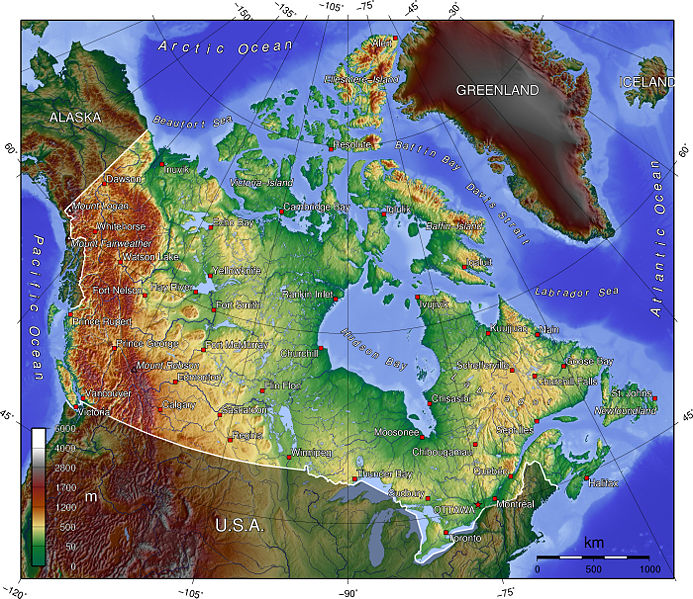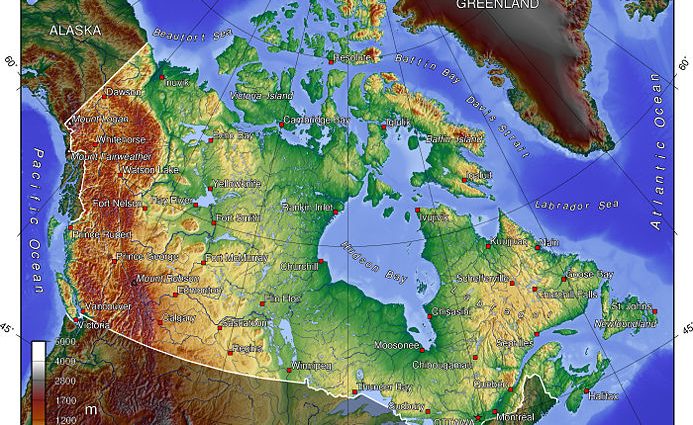 CFN – To revitalize its flagging trade and productivity performance, Canada should adapt its international trade and investment policies to a world of global value chains, evolving trade and investment patterns, and deepening economic integration; according to a new report from the C.D. Howe Institute.
CFN – To revitalize its flagging trade and productivity performance, Canada should adapt its international trade and investment policies to a world of global value chains, evolving trade and investment patterns, and deepening economic integration; according to a new report from the C.D. Howe Institute.
.
In “Breaking Free: A Post-mercantilist Trade and Productivity Agenda for Canada,” Research Fellow Michael Hart says to be more competitive, Canada needs to wean itself more completely from a mercantilist approach best suited to an era in which products and firms had clear national identities, which is rarely the case today.
“Canada’s trade and investment policies are stuck in the past. We risk being caught flat-footed and side-lined in the highly integrated global marketplace,”
.
says Professor Hart, Simon Reisman Chair in Trade Policy at the Norman Paterson School of International Affairs, Carleton University.
What’s more, Canada should not wait for a hypothetical “payoff” from negotiations with other countries, says Professor Hart, but instead proceed in its own interest to remove home-grown impediments to trade. He identifies disruptive anti-dumping and countervailing duty regimes, ineffective subsidies and procurement preferences, tariff restrictions, including in supply-managed sectors, overabundant regulations and remaining restrictions on foreign ownership, as areas where liberalization should prevail. Such reforms would generate cost savings for the government, and leave the economy more competitive and with a stronger tax base, he says.
These reforms, according to the author, would leave Canada free to focus on easing passage for secure trade and people at the vital Canada-US border and aligning its regulations with the United States and other major trading partners in areas where regulatory duplication does not make sense. Beyond the United States, Canada should focus its diplomatic resources on the basis of a clearly articulated business case or foreign policy rationale. By these criteria, notes Professor Hart, there is more potential for a useful breakthrough for Canada across the Pacific – where there is growing demand for what Canada can provide and where government-to-government relations “remain an important part of enhancing economic ties” – than across the Atlantic or in the rest of the Americas.


The “free trade” also known as globalization is a “communistic one world government” type of trade and no country will ever be sovereign under this plan. It is for the erasing of all borders and everyone can look that up. We already lost our sovereignity and Canada is only Canada in name only as are other countries. The US already owns CN Railway and other companies. Warren Buffett (American Investor) already has his hands in our oil industry along with American companies. Buffett wants to sell our oil to China which he is doing just now. We are in a fascist government and no more rights and freedoms. Soon there will be no private property, no rights to arms or anything. This is all true and in the United Nations documents. People think that this is a conspiracy theory but instead it is a conspiracy fact. Look it all up.
The C.D. Howe Institute is a pretty close cousin to The Fraser Institute. It was established by wealthy industrialists to try to keep as much wealth in the hands of the 1% ruling class, just like The Fraser Institute does. The sad part is that these self serving fat-cat institutes are registered “charities” in Canada! Fat-Cat lobby groups pay no taxes, just the same as religious cults pay no taxes.
@ Jules. I don’t always understand or agree with what you post, but I think you nailed it this time. Thanks to Mulroney’s free trade deals, and the gods of globalization, we have pretty much no manufacturing going on in Canada anymore. I think it has boiled down to the fact that we were sold out in the eighties and nineties, and now we are completely dinked.